From our visit with Sallai István “Pista bácsi” on October 13, 2021.
On our second full day in Szék, we set out to find Sallai István “Pista bácsi”, a local singer. “Bácsi” means uncle and is commonly used to refer to older men.
Getting directions in a small town has been difficult to get used to. No one uses house numbers— rather, it’s usually something like “go down the street until you see a yellow house, across from there is a bridge, go across the bridge and walk in the direction of the cemetery until you see a blue house on the left…”
We went to Pista bácsi’s house and called out for him, and his neighbor said we should go up the street until we reached a playground, and to ask someone around there where he might be. We asked someone there, and they said that he was in a cornfield on the other side of the road. We walked through the cornfield and found Pista bácsi chopping down a tree. Pista bácsi is 81 years old, but he told us that he tells people he’s 60 because his hair hasn’t yet turned white. He invited us to his house to listen to some songs, putting some ears of corn in his boots to transport them out of the field.
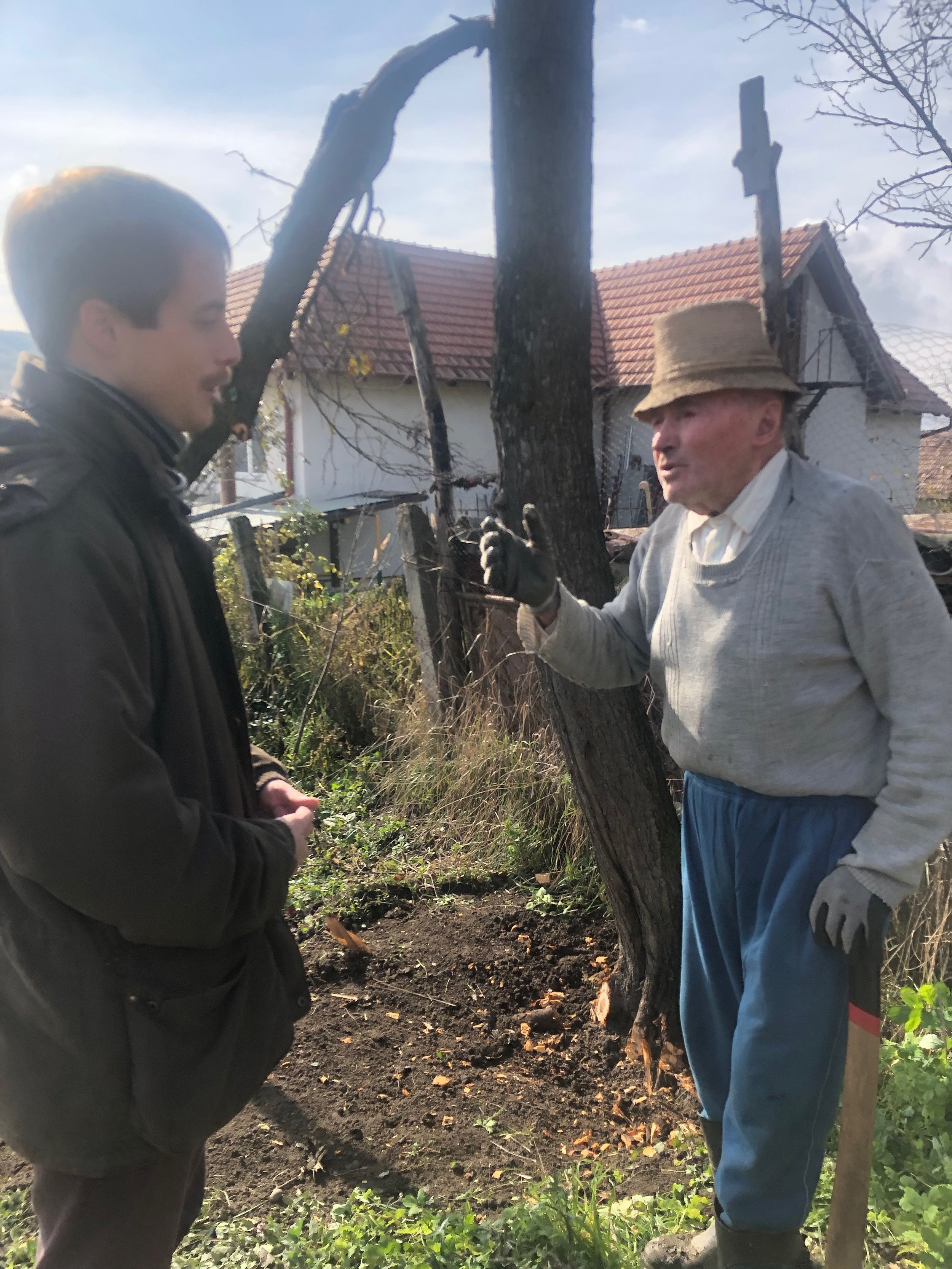
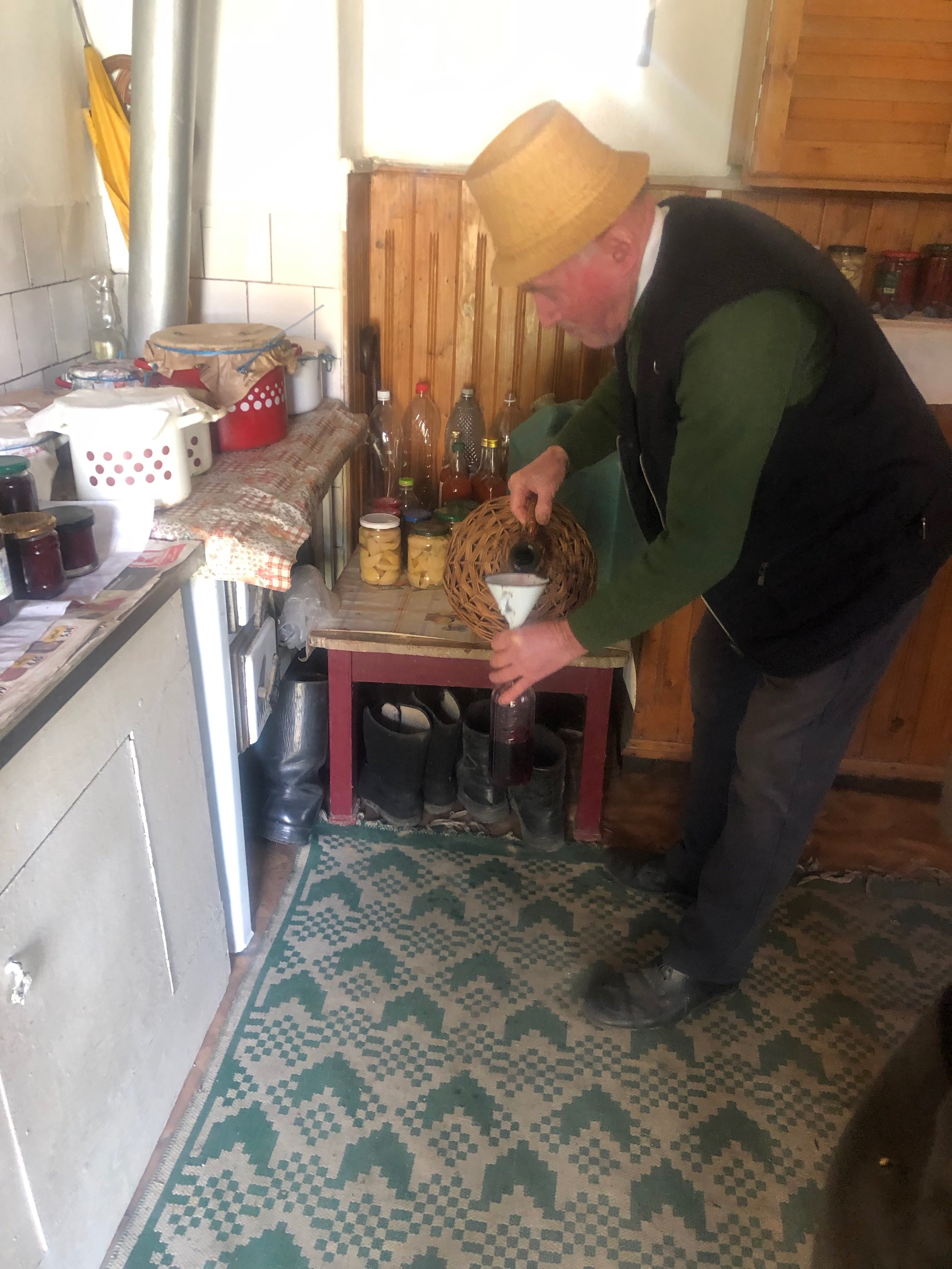
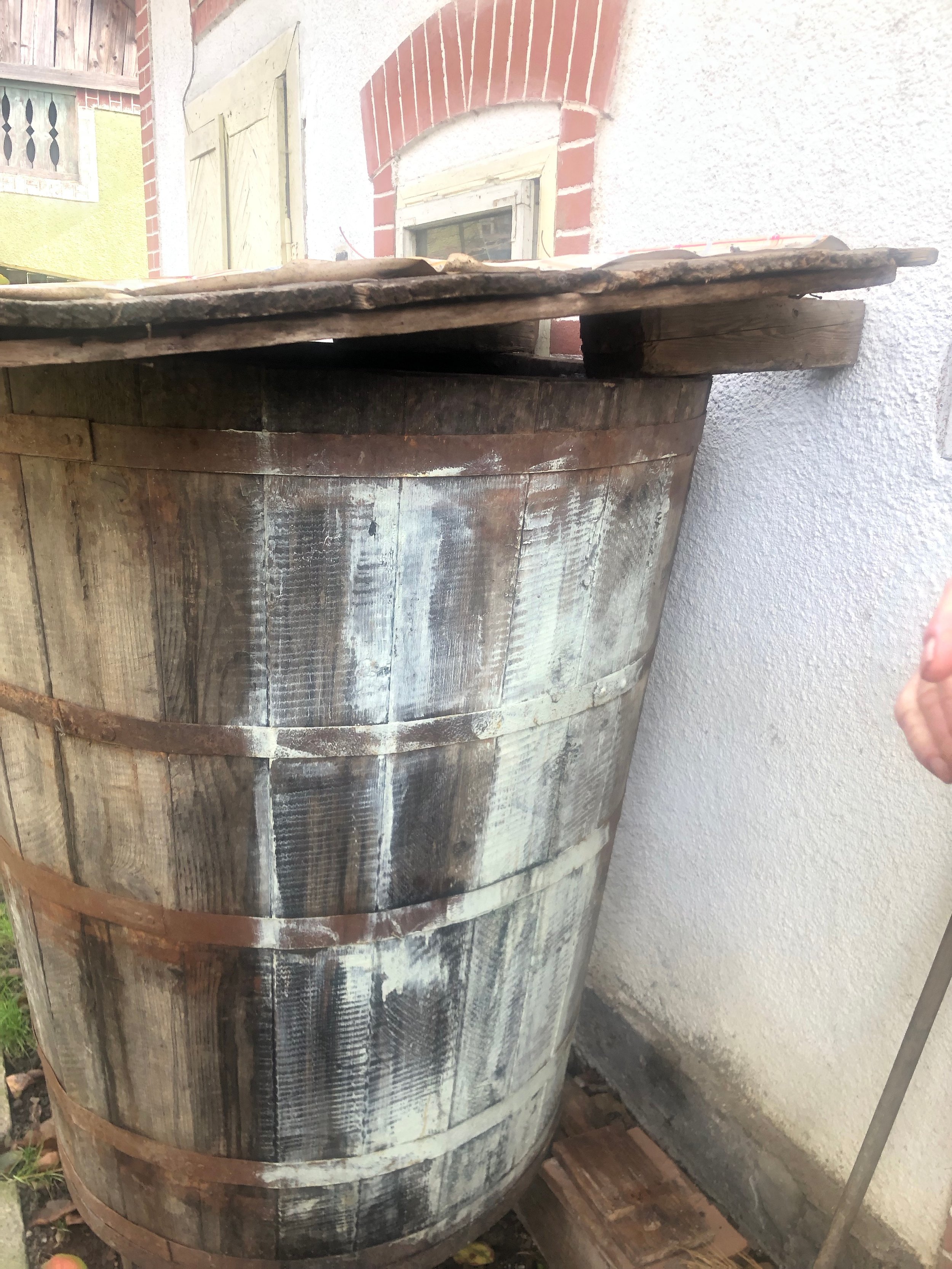
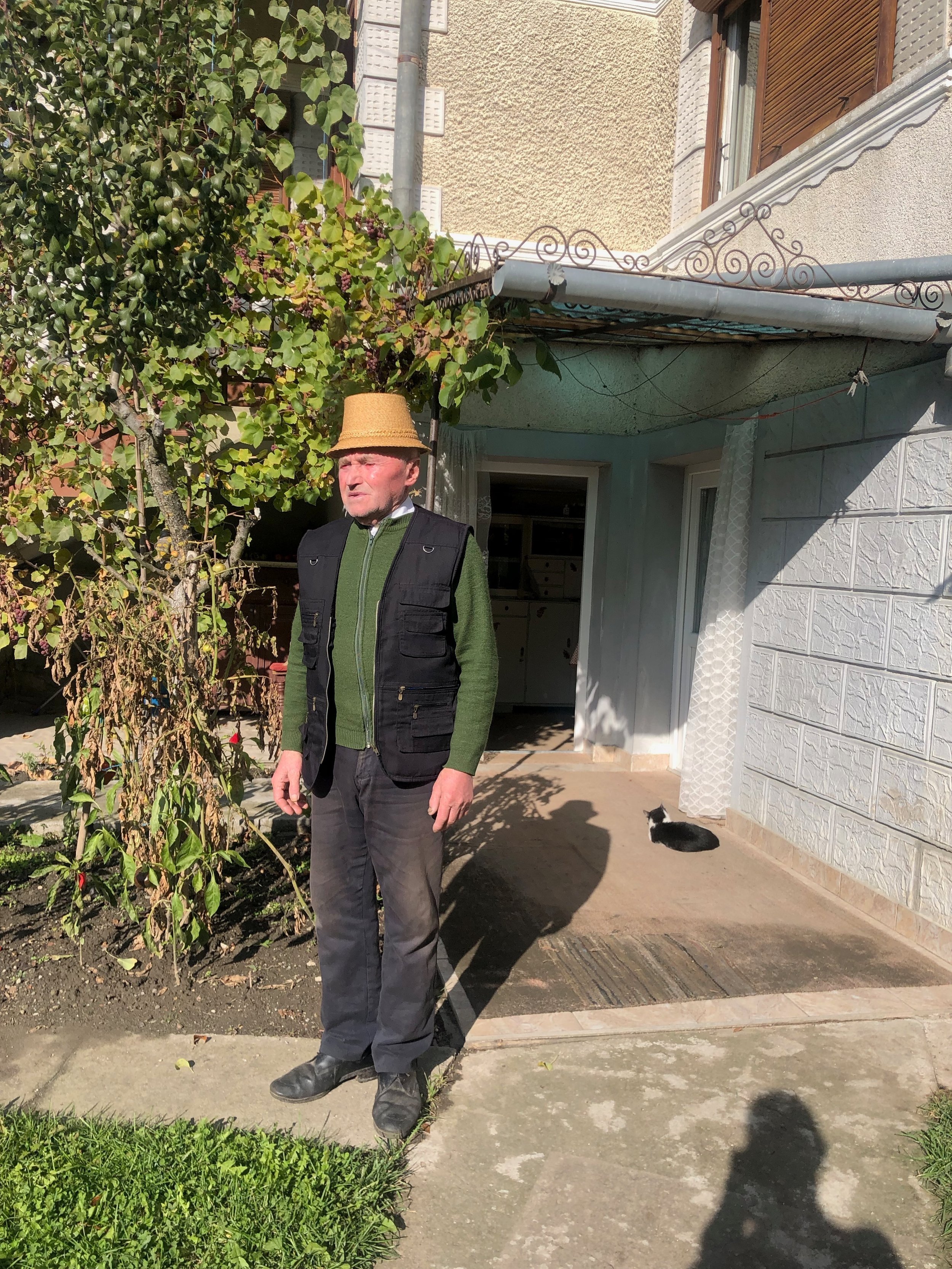
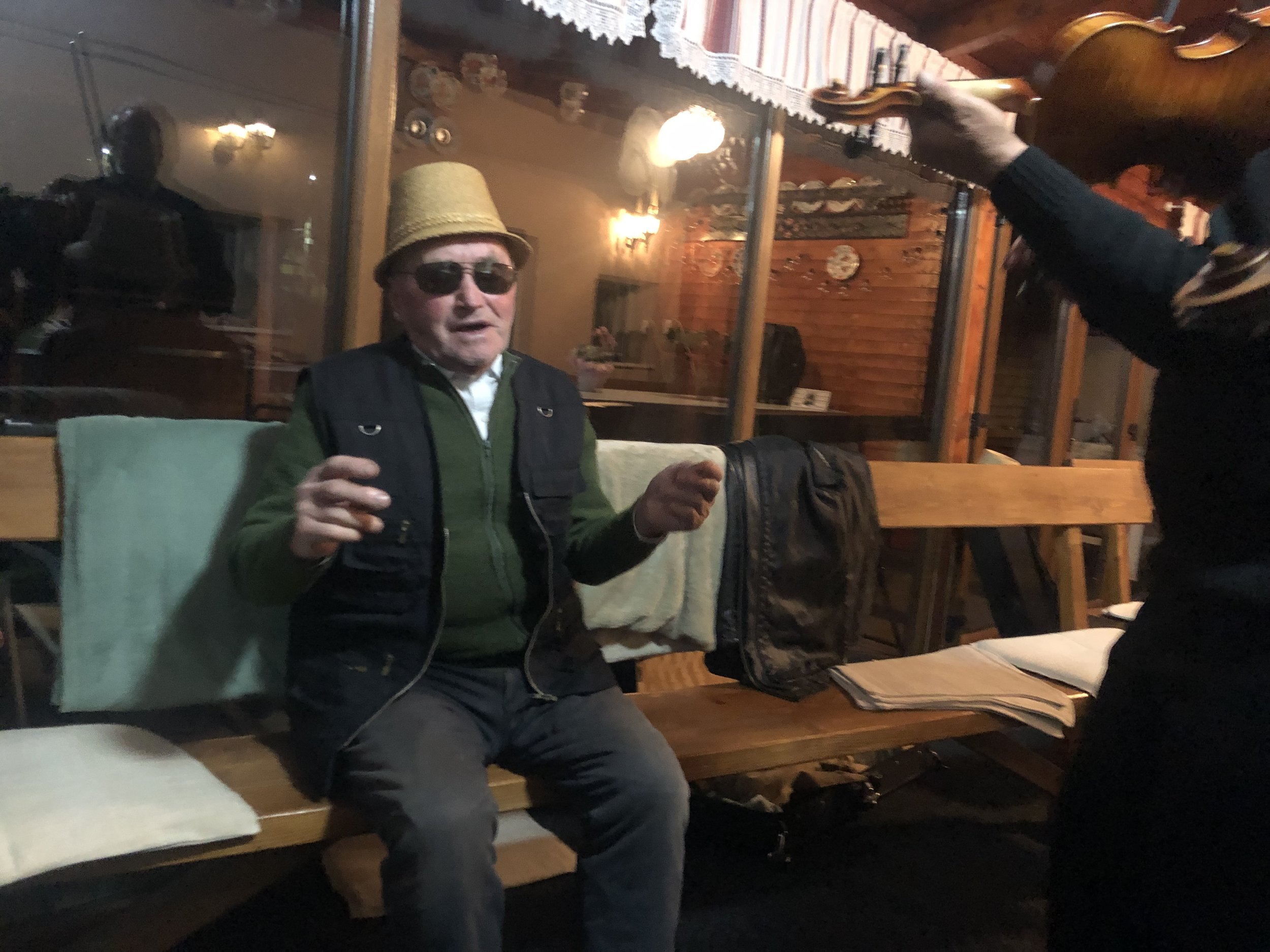

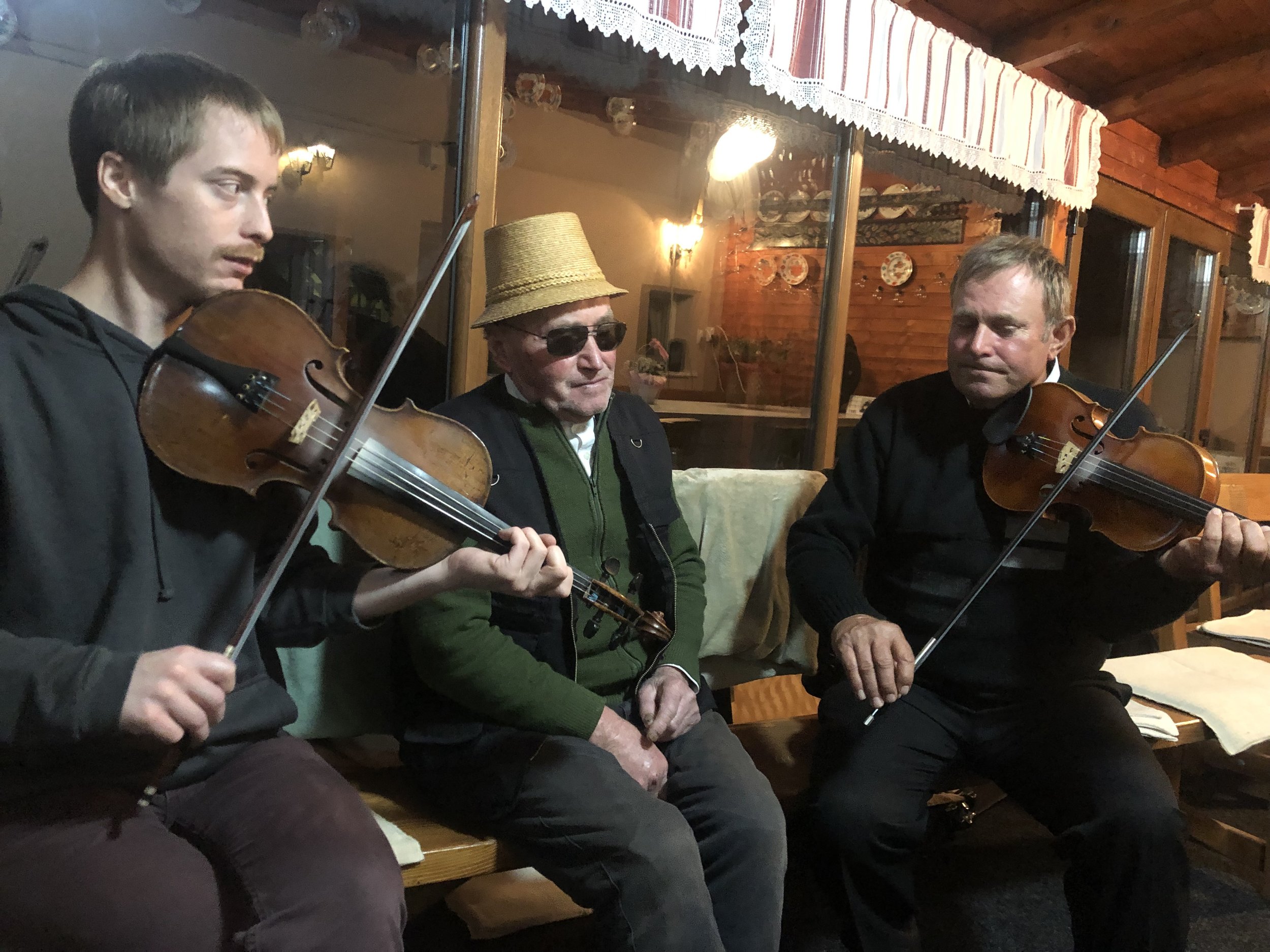
At his house, he offered us some cherry pálinka he had made, and pointed out the giant barrel of plums fermenting that he will use to make pálinka. Everyone in the village seemingly has giant containers of plums— there was a bumper crop this year.
He kindly sang some songs for us, and I interviewed him (with Attila’s help as translator). Some take-aways from our conversation:
— He didn’t learn songs in school. He learned some from his grandfather on his father’s side and from other older acquaintances. He compared his learning of songs to a TV show called “Nagymama Palacsintája” (grandma’s pancakes)… ie, they are like family recipes that are passed down.
— He is very proud of his participation in the Szék dance troupe, which would go out to competitions between 1960 and 1980. He recalled a competition in Cluj where dance troupes from 32 villages took part, and the group from Szék won (he said “Szék always won”). He remembered Romanian dancers with bells on their feet.
— He learned to dance from the older boys at the táncház. He said that when he was young, the church bell would ring on Sunday afternoon and everyone would go to the táncház.
Note: Szék has 3 main streets: Felszeg, Forrószeg, and Csipkeszeg. They are laid out like arms of an octopus radiating out from a central point. Each street used to have its own weekly táncház, making Szék an important destination for ethnomusicologists, including the founders of the táncház movement in Hungary.
— Pista bácsi talked in detail about violence that could happen in the táncház: “A guy from Felszeg couldn’t come to Csipkeszeg unless we were friends and I took him in, otherwise he would be beaten. Just like I couldn’t go to Felszeg or Forrószeg, unless I had a friend and he invited me. Otherwise … I could be beaten, or even stabbed… It isn’t like this now.”
— Violence could also happen at the táncház if one man cut in front of another in the line to dance in front of the musicians (who would play on a high raised bench so that their sound would project over the dancers). This would cause shame to the man who was overtaken. Pista bácsi talked at length about how he would carry knives and even brass knuckles, saying that although he was short, he was not afraid to fight. When I asked “what caused this violence?” Pista bácsi said, “well, the violence was caused by fighting” and “it’s like chicks under the hen” (meaning, it’s just what people do).
— One of the songs he sang for us referred to historical event in Szék. In 1935, a man named Perzsi Pista was killed by a man named Seresté. The story is that during a fight, Perzsi pushed Seresté to the ground. From the ground, Seresté flailed with his knife, and hit Perzsi in the neck, striking an artery.
The song is called Hallottátok, Forrószegen mi történt, which means “Did you hear what happened in Forrószeg”? Here’s a translation of the Hungarian lyrics by Fenyvesi Attila:
Did you hear what happened in Forrószeg?
That handsome brown-haired lad was killed.
They took his life like that of a partridge
They took him in dead to his mother.
Seresté, didn’t your heart ache
When you killed that brown-haired lad
Yes indeed, it was aching. I thought it would crack
When he said “oh my G-d, I’m dying”
Here’s a recording I made during our session of Pista bácsi singing this song:
Later that night, we met with Pista bácsi and Sipos Marci to hear more songs. Pista bácsi also demonstrated that he is still capable of dancing the Széki “tempo” which is a dance similar to legényes.
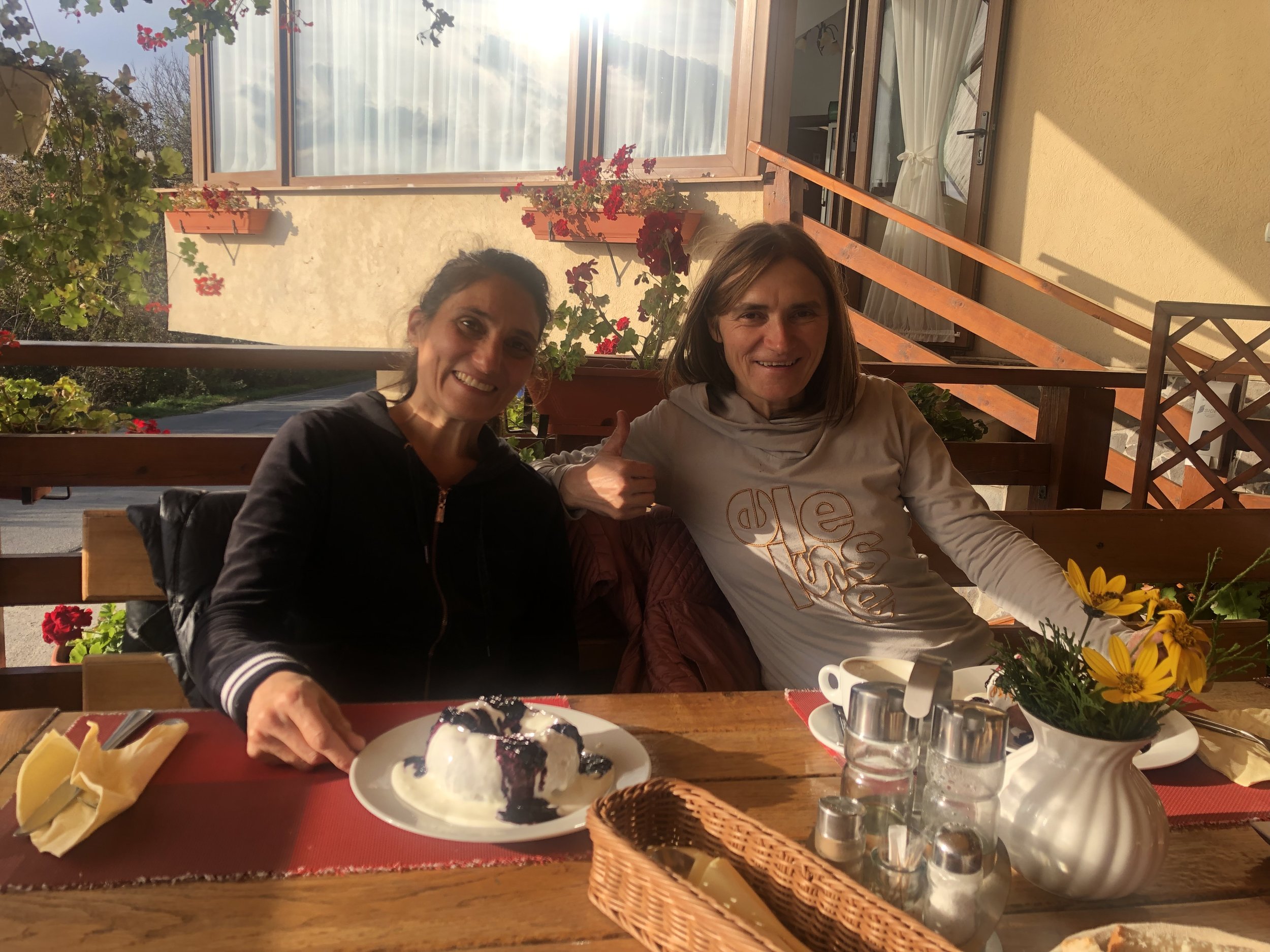
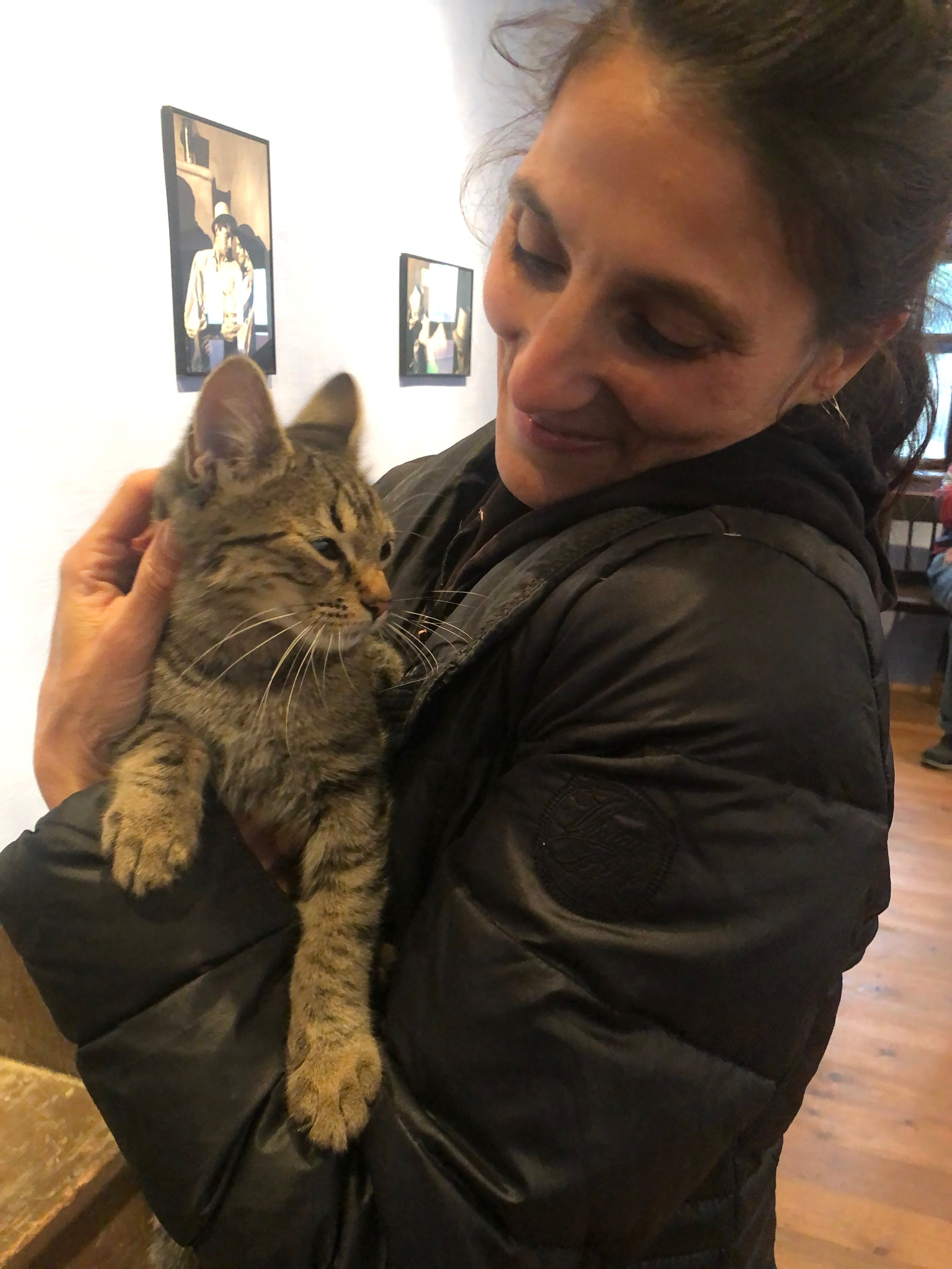
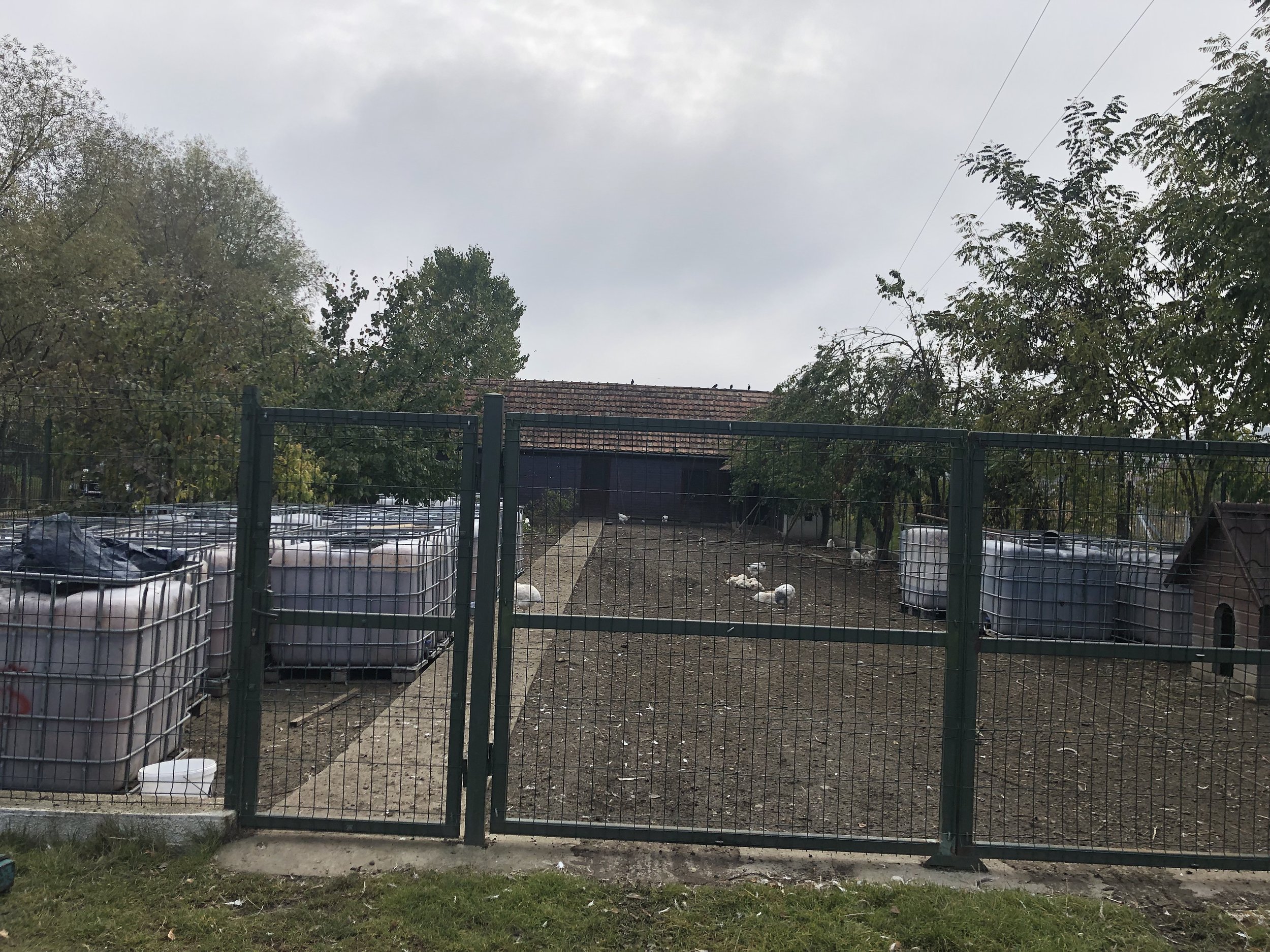
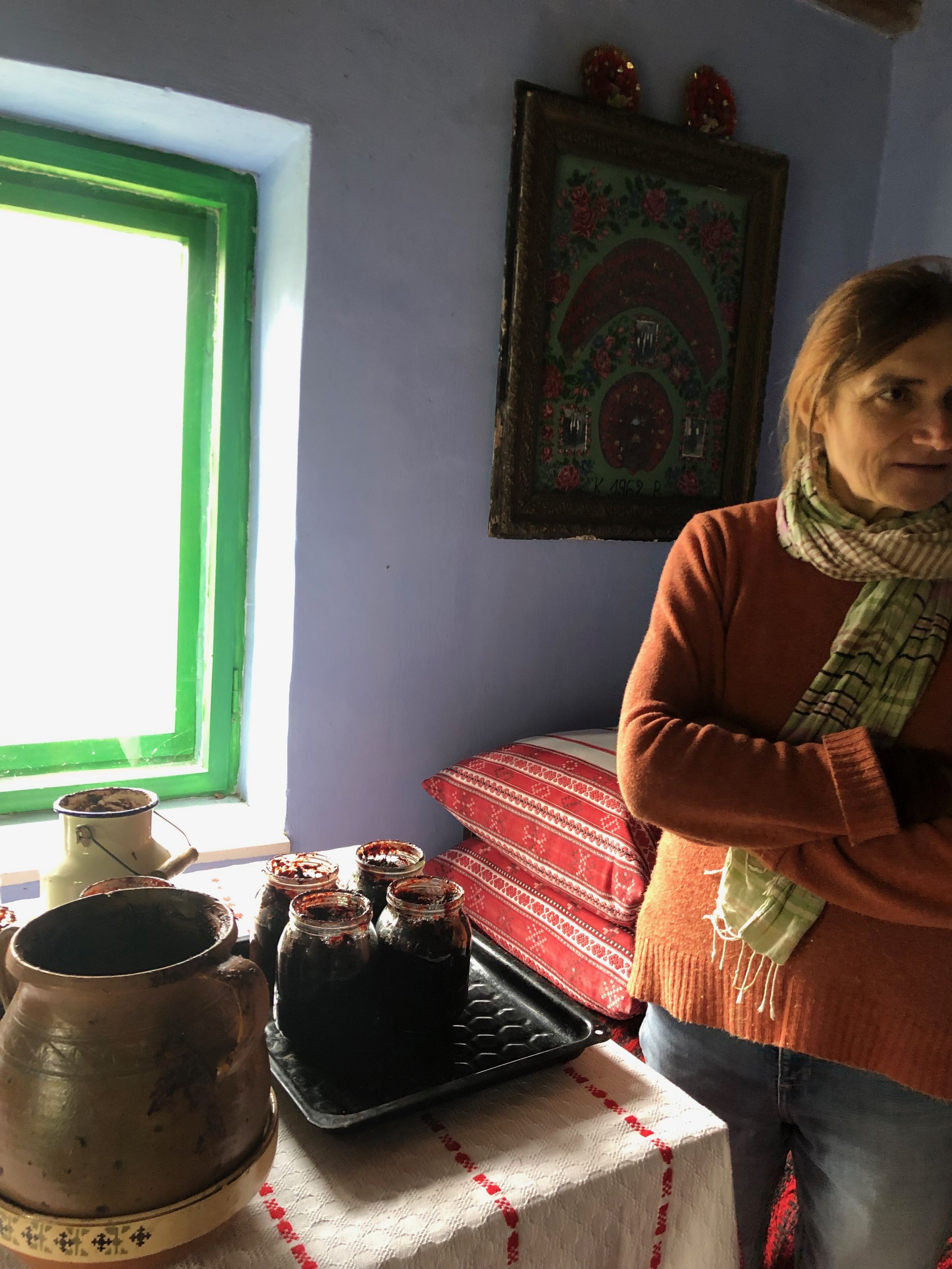
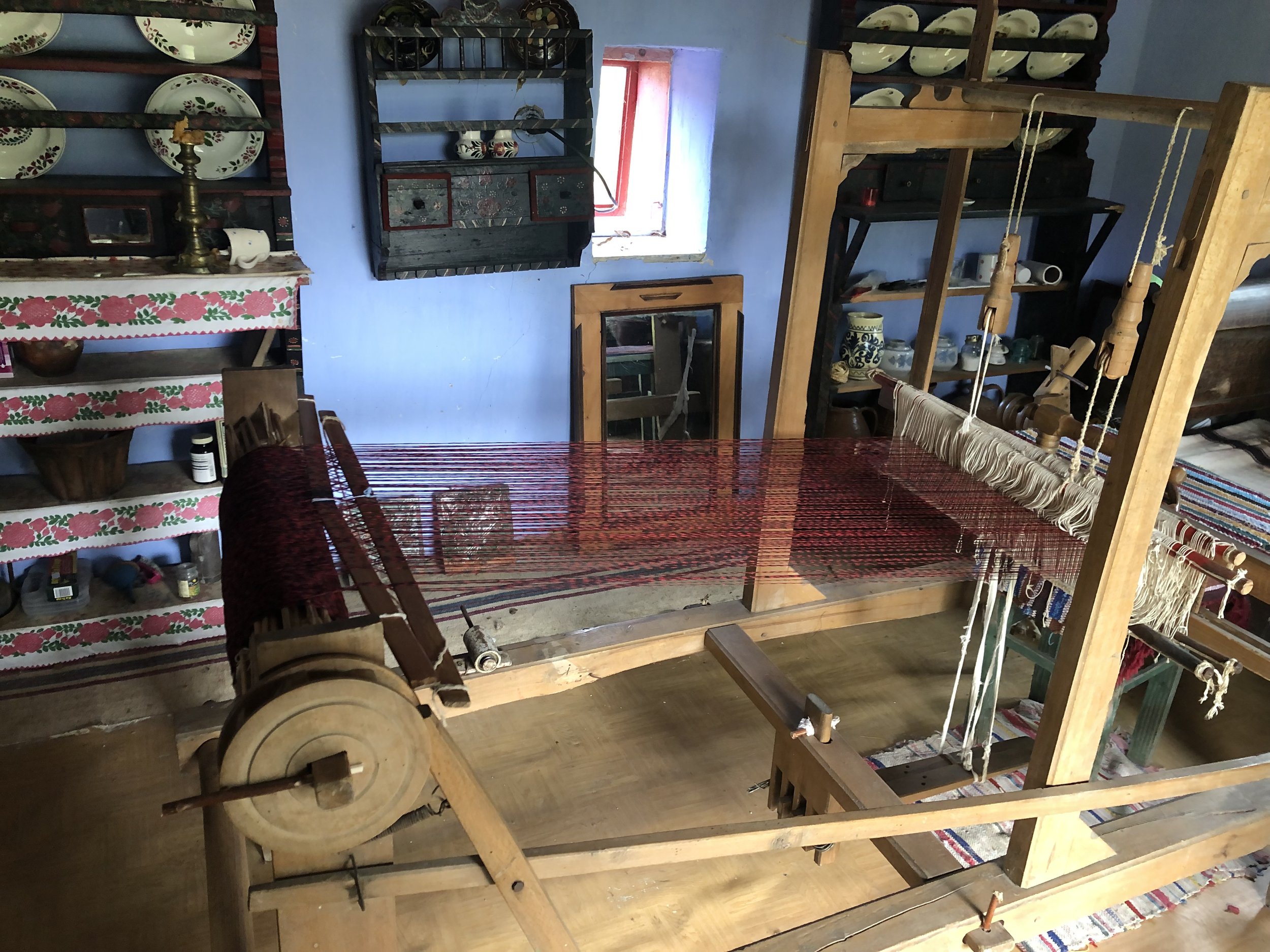
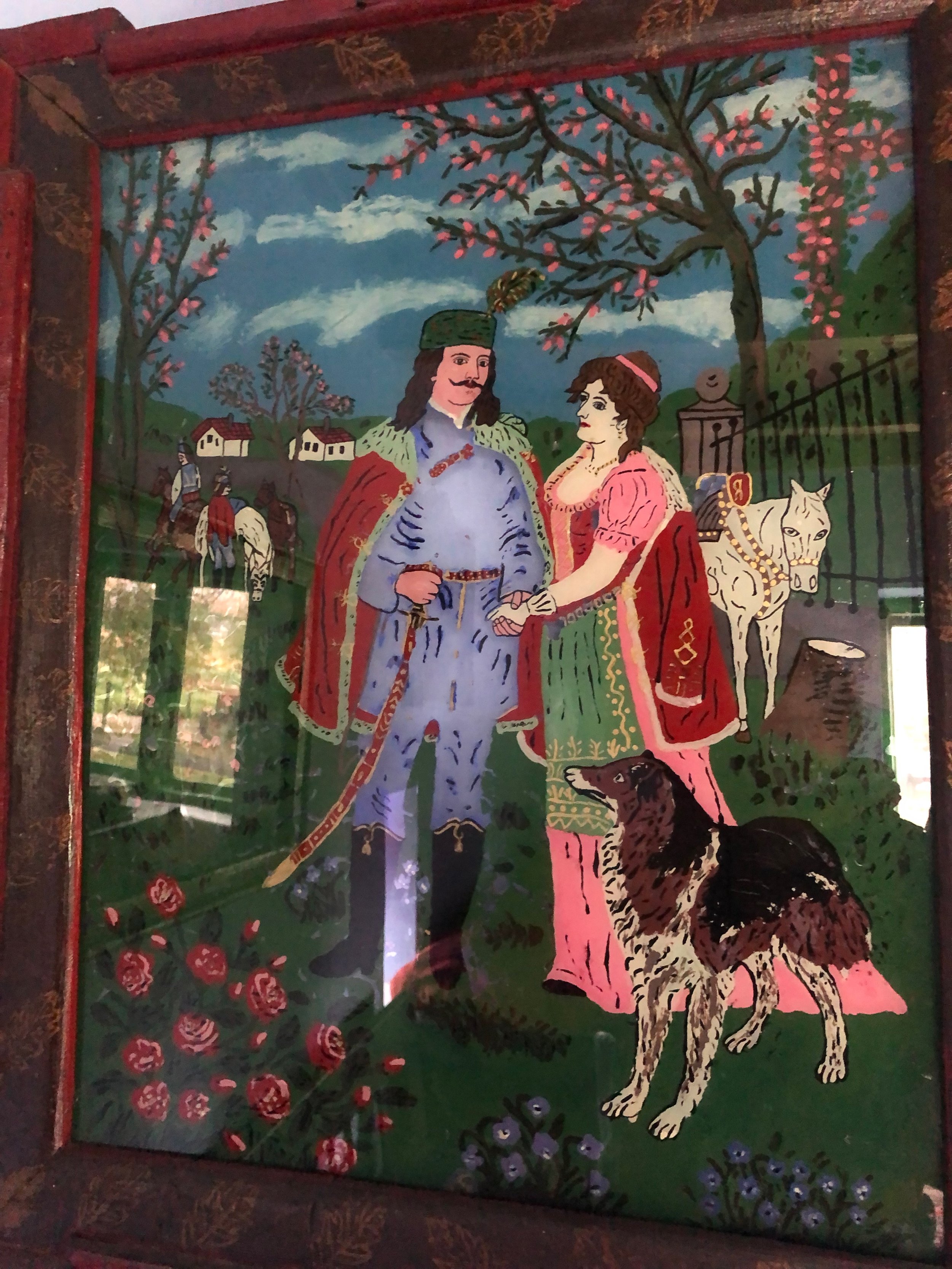
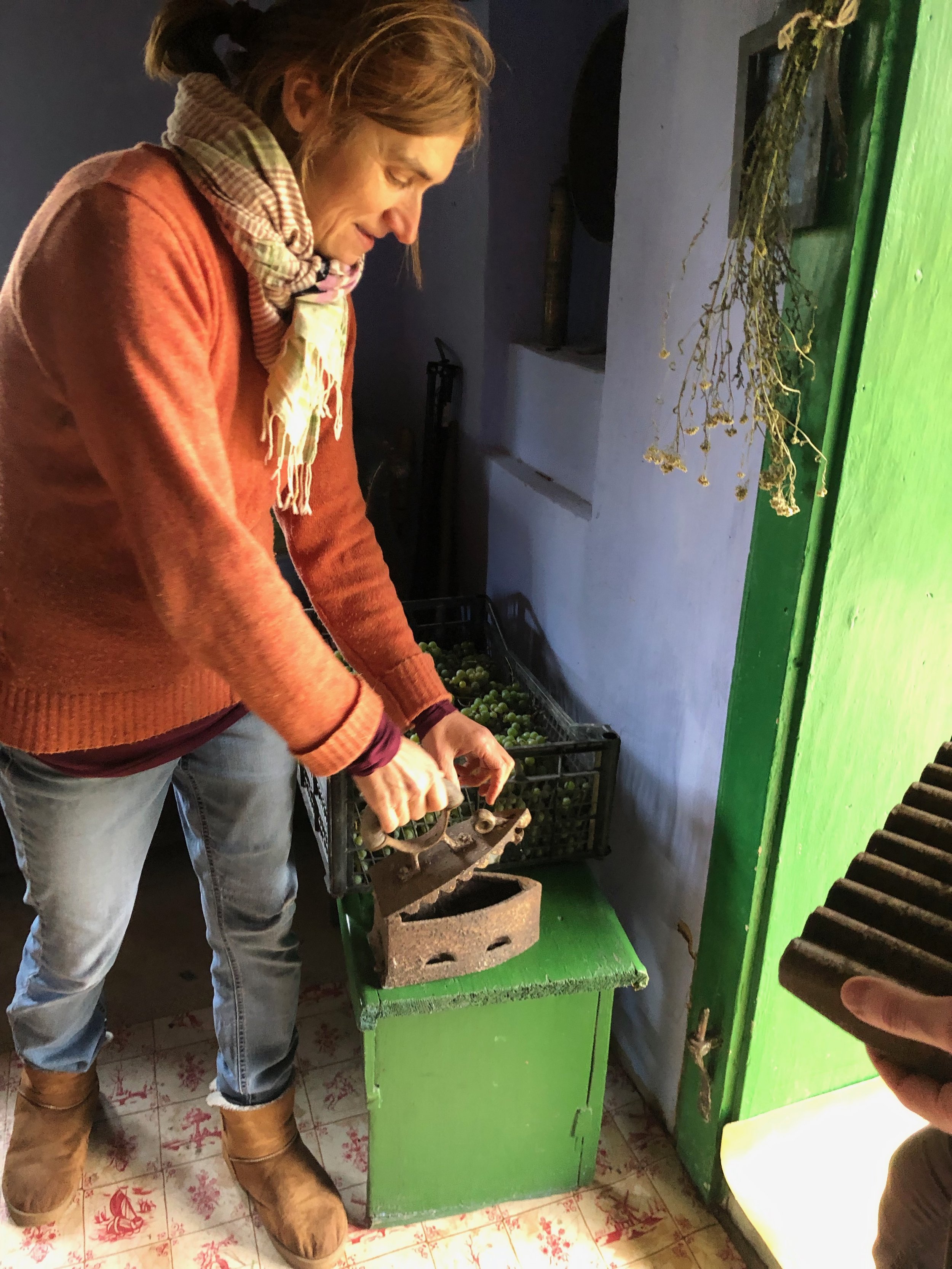
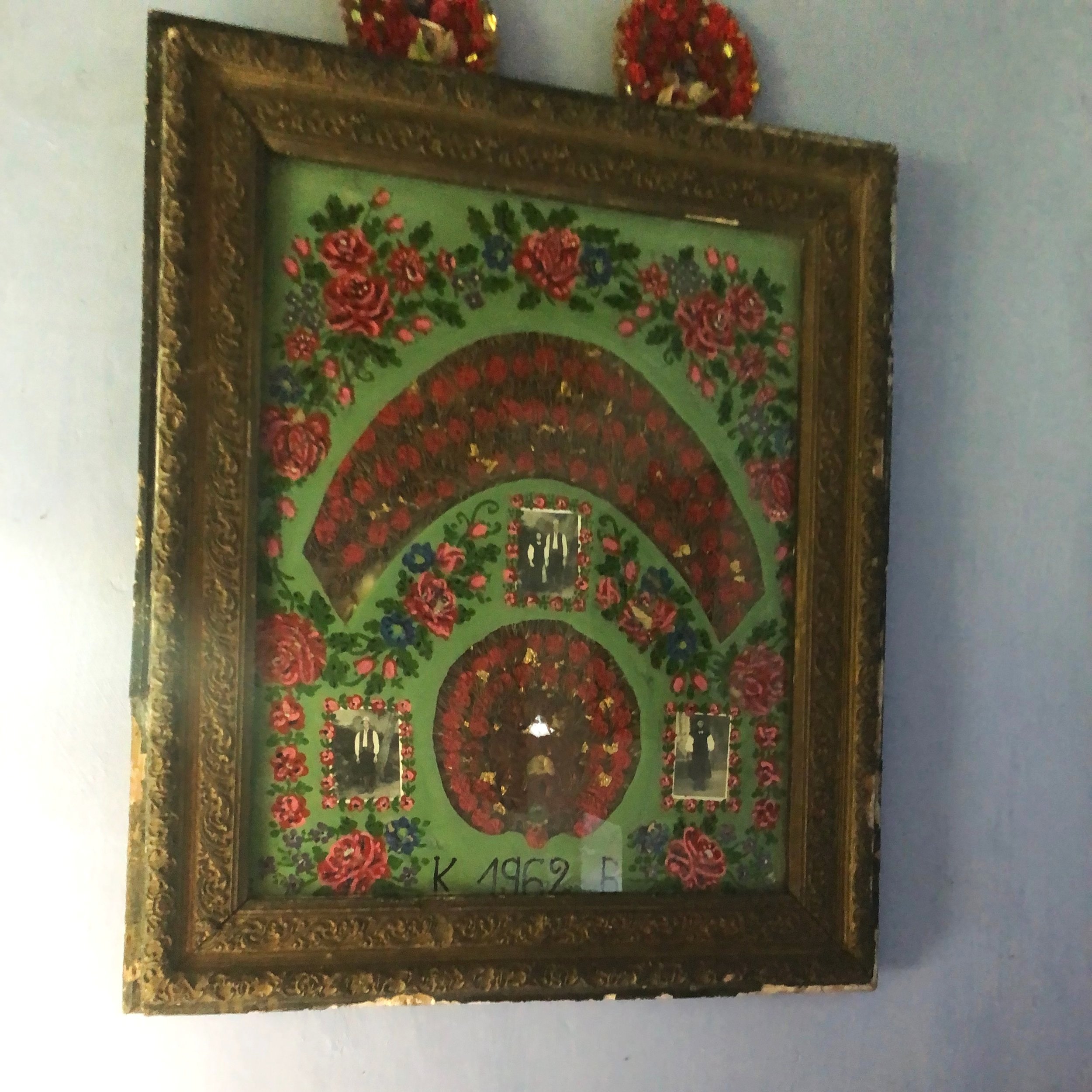
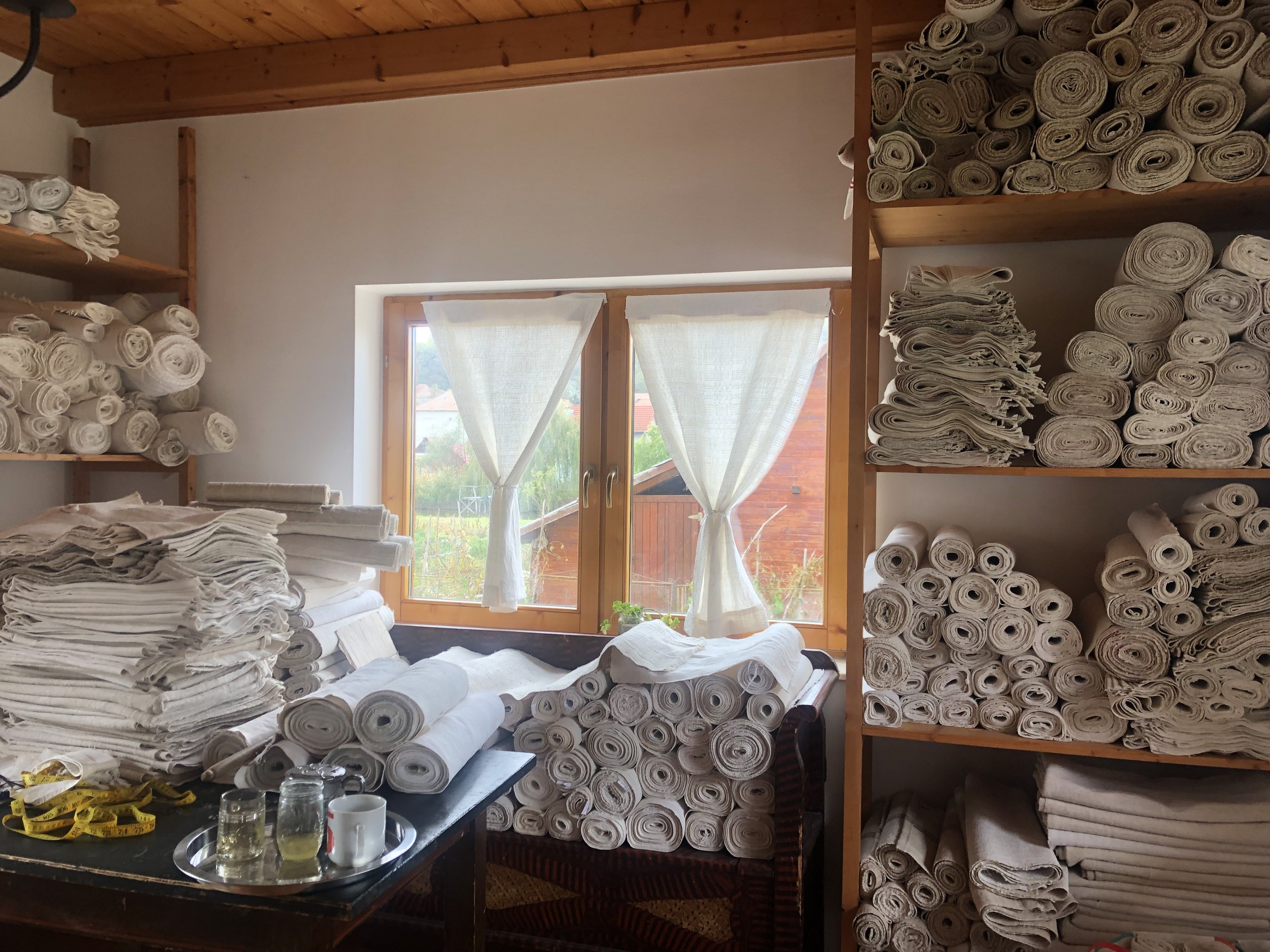
One more highlight from Szék: meeting Zsuzsi and Cara! Cara is from California and Zsuzsi grew up in Szék, and now they split their time between Szék and Budapest. They run a textile exporting business, and their textiles are absolutely gorgeous. Thanks for showing us around, Zsuzsi and Cara!